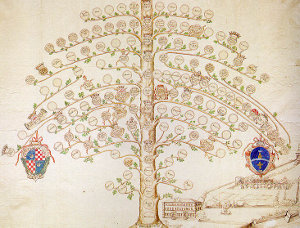If you search your ancestors in Bienno, in the province of Brescia, Lombardia region, the documents about your Italian family are stored in the City Office archives and in the parishes in the town.This is where to start your family history research.
Civil Records in Bienno
In towns and villages of Lombardia and in Brescia province registry offices were established in 1809: it means that you could find your ancestors records in Bienno town hall archives as of that date.
(If your goal is to get your Italian Citizenship and you need official certificates from Bienno, please follow this link)
.
So, if your ancestors lived in Bienno during the past centuries, then you should start your family research from the City Office of Bienno to know more: our local expert is ready to help you in your research!
Otherwise, if you think to contact the town hall by yourself, we suggest you to read our tips for your search. They are useful advices to search in Lombardia and of course in Bienno too!
Next picture shows the demographic trends in Bienno from the Italian Unification (1861).
This is a necessary info to understand how many people lived in the town in the past.

To go on quickly in your research is important to know if the last name you are investigating is a frequent surname in Bienno. As more your surname is common, as more it could be difficult to find the right branch of your ancestors family in Bienno archives, expecially if you have not exact dates.
It could be useful for you to know that
Church Records in Bienno
Church archives in Brescia province may store even older information. You will find religious records of the same events (births, marriages and deaths) but, most important, you could go further back in time!
So in case you would like to go back in centuries, it’s good for you to know that the parish registers in Lombardia started during 1500!
They are far less accessible expecially from abroad and very hard to read and decipher if you are not used and skilled.
But our local genealogists, are graduated in history and archivistics so, with their expertise, they can research the church registers of Bienno on your behalf.
In case you want to visit churches, these are the addresses of parishes active today in Bienno:
S. APOLLONIO – Via Madonna, 3
SANTI FAUSTINO E GIOVITA – Via S. Benedetto, 22

Anyway for our experience, if you plan to come here, we always suggest to start the research months before the arrival.
In this way you will avoid to waste your holidays in the offices or in the churches dealing with italian bureaucracy .
(Remember that archives are not open to public and officers and priests are not required by law to give you access to the local archives)
With the results gathered by our genealogist before your arrival, you will have more free time to visit the town and surroundings on your ancestors footsteps.
Another important source of information are the notary documents available to expert researchers in the State Archives.
If you need a professional help from our local genealogist in Bienno area , write to bienno@italianside.com or fill the form here.
Our expert will study your request and will reply to you with a plan and a quote for your family research.
If you want to read this page in other languages:
– Italiano
– Espanol
– Portuguese
Here below you can read the messages received from other visitors in Bienno forum:
if you only want to discuss with other people interested in genealogy in Bienno feel free to leave a message below.

My great great great grandfather was born about 1785 and came to England from Italy around 1805. He was illiterate and his name was spelt many ways but eventually became Alexander Belleini but I assume it was probably originally Alessandro (or Alexandro) Bellini. His job was recorded as a picture frame maker and later wire worker. HIs father was shown as Stephen (presumably Stefano), a farmer. It has been suggested that he may have come from Bienno and I am wondering if there is any way of checking the local records from those times, which would presumably have been local church records.